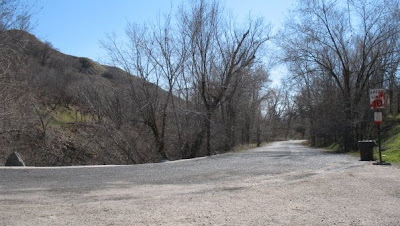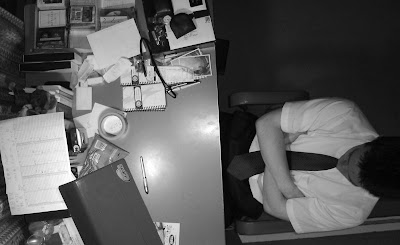
This is a photograph of what it looks like to come out to someone.
Well, depending on your situation. If you come out to someone on a sunny, warm St. Patrick's Day in 2007, the kind of day on which you can wear shorts and a polo and feel just great (besides the intense inner turmoil).
And if the "someone" is actually your two best friends, where the first one has been your best friend for five years and has had feelings for you the whole time, but you haven't been able to explain why you don't know if you're attracted to her or not. If she knows you better than anyone else, and you love being around her, but your relationship has become strained. And if you go to see the other best friend sing in a concert in the city, and that friend is someone you can always trust and always talk to.
And if you steal them both away from their other friends for an hour, and take them into a little valley by the capitol building. If you get nervous trying to find a place to do it, while they wonder why you're acting so strangely, and you settle on a little bench overlooking a path and a sign with red spray paint on it.
And if you think it's the hardest thing you've ever done, and you just sit there silently between them on the bench. And you think about not doing it. And you begin to cry, wondering again how life will change after that day. If you know that you need to do it, because life is getting too hard to live without someone to talk to, and you really, really trust them.
And if you do it, and you spit out as much as you can, trying to answer anticipated questions through the tears.
If you stop talking, and for a moment feel completely empty and alone as they sit silently at your side. And then they reach for you and embrace you, and you feel the love and comfort of eternal friendship, and you "let it all out," and you never want to let go.
And if eventually you let go, ready to start the slow process of understanding, ready to face a very new life filled with more honesty, more openness, more pain, and more love. And if you wipe your eyes and look.
That's what it looks like.

